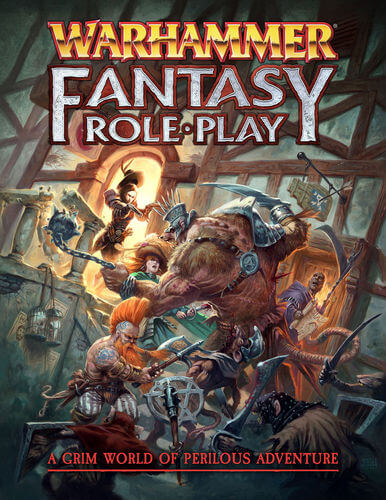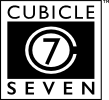WFRP: Magic Systems

#WarhammerWednesday
Today we have a blog post about Magic in WFRP from Clive Oldfield. Clive started playing WFRP virtually the day it came out, back in 1986 and has contributed to the second, third and fourth editions of the RPG, as well as the officially unofficial Warpstone magazine and so is an excellent source of information! Look out for another article from Clive soon!

Magic Systems
The magic rules for WFRP are made up from a number of smaller systems. Just like the Winds of Magic, these systems need to be manipulated and coerced before the full power of magic can be realised. Although I am not a Wizard, I will go over a few of the fundamentals of spell casting in WFRP, and a few tweaks to the existing systems.
The most straight-forward way to cast a spell, and a method that can only reliably be used on very low Casting Number (CN) spells, is to simply make a Language (Magick) Test. If this succeeds, then a CN: 0 spell is successful. CN: 0 means that no extra Success Levels are required to successfully cast the spell. If the spell is CN: 2, then 2 Success Levels (SL) are required. So we see that even a relatively ‘easy’ spell is not going to be easy to cast at all, especially for an inexperienced Wizard.
Consider a Wizard with Language (Magick) Skill of 48 trying to cast a CN: 2 spell. With no other modifiers, the Wizard requires a roll of 29 or below. That’s a low success rate for what is a relatively simple spell.
Channelling
In order to cast high-CN spells, or even feel confident of successfully casting spells with an average CN, Channelling is required. To channel, a Wizard must make an Extended Test. Any positive SL contributes towards the Channelling total, while negative SL reduce this total. A Casting Test is made on the turn after a successful Channelling Test. If this is failed, it means that this particular attempt has failed and the Wizard will need to start again from scratch. This reflects the Wizard losing control of the Winds, all their accumulated power draining away, and needing to refocus their mind.
It is apparent that a powerful spell can take a long time to cast, or even prove elusive enough that the Wizard gives up. This is not always satisfactory and one house rule to mitigate this is to allow a Wizard to keep all the energy they have channelled after a failed Casting Test in exchange for a roll on the Minor Miscast Table. Of course, one very simple — and dangerous — way to increase the SL of magical rolls is to employ Warpstone.
The rules on p. 237 state that ‘When your SL reaches the CN of your selected spell, you have channelled enough magic to cast it.’ Of course, casters should be able to anticipate this. Even if they have not yet acquired enough SL through extended channelling, they may still attempt to cast the spell, hoping to achieve the remaining SL from the Language (Magick) Test. This means a Wizard in a desperate hurry can gamble that they get the required power for the spell, even after some channelling.
Overcasting and Channelling
Similarly, I rule that a Wizard may continue channelling long after the required SL requirement has been met. This means that the extra SL can be used to enhance the spell effects (see the section on Overcasting p.238); very powerful and far reaching effects can be achieved if the Wizard is patient and keeps their nerve. Or it can mean losing control of dangerous amounts of magical energy. To reflect the increased risk in manipulating such powerful forces, any Minor Miscast rolled once the minimum required SL has been achieved should be treated as a Major Miscast.
Touch Spells and Advantage
Touch spells cannot have their range extended through use of Success Levels, so the Wizard must get up close and personal in melee to make them work. Once a spell is successfully cast, a Wizard must win an opposed Melee (Brawling) Test in order to complete the spell or the power is lost.
As a generous sort of GM, I rule that Wizard’s staffs are effectively extensions of their bodies, and so allow a hit with Melee (Polearm) to count for the purposes of Touch. This goes some way to explaining why Wizards always seem to have their staffs handy. Also, as even more help, I rule that each excess SL from the casting roll can be used to add +1 SL to the Melee Test.
One way to gain Advantage in preparation for a Touch spell is to build it up in a similar way that a conventional combatant might. This can be done simply through repeated attacks, but the Wizard can be more creative, perhaps by dodging around and avoiding their opponent’s blows, while waiting for the opportune moment to strike, and even by a series of witticisms and taunts, through the Entertain skill, or even by Sleight of Hand or Intimidate.
This sort of creative Advantage build up works well all through WFRP but can be particularly satisfying when a Wizard manages to pull off a devastating spell on a heavily armed opponent.
One extra thing to remember with touch spells is that any hit locations required are derived from the Melee Test and not the Casting Test.
Area of Effect and Single Target Spells
It can be difficult to judge exactly how destructive these spells will be because of the unpredictability of overcasting. On deciding which offensive spell is right for the moment, a Wizard should consider the number of potential targets and how dispersed they are. Single target spells are inherently limited, of course, but can easily hit multiple targets thanks to a good Casting roll and applied SL. Generally, Area of Effect spells do the most damage overall, but well-targeted single target spells can rival them under the right circumstances.
Grimoires
The Grimoire is often under-utilised by Wizard players. It is a source of spells that have not been learned yet, from a collection handed down by a mentor and bound in a thick tome to a single scroll or leaflet. A Wizard can make it their mission to seek out as many spells as possible and add them to their tome. This is a great source of adventure hooks, of bargaining between Wizards, and a currency in its own right.
Even though the Wizard does not have a particular spell memorised they are able to cast it if they are reading directly from the Grimoire. This of course brings its own hazards; it might be disastrous for a Wizard to lose or damage their tome. But under the right circumstances, casting directly from a Grimoire can be worthwhile.The casting number doubles when the spell is not memorised, so ideally the Wizard will have to have the time to channel the required power (or some handy Warpstone), and relative safety from interruption. This best suits a Wizard who wishes to cast non-combat spells in a more peaceful environment or one that trusts that their fellows are able to keep them safe for as long as it takes.
Until next time,
Clive.
Shop WFRP Now!
Find out more and browse all of our Warhammer Fantasy Roleplay products here.
As always all orders placed on cubicle7games.com include a PDF so you can start prepping and playing straight away!
Due to COVID-19 we, like many others, are experiencing significant disruption to our delivery network, but rest assured our webstore is still open. Delays to physical orders are unavoidable in these difficult times and we are doing our best to keep things moving.
We really appreciate your support and patience as we work through these challenging and exceptional times, every order placed supports our continued growth and the C7 team. We continue to monitor the situation closely and will update you on any changes.
Cubicle 7 Entertainment Ltd. © Games Workshop 2020

 Twitter
Twitter Facebook
Facebook Youtube
Youtube